
Rising Stars in Engineering in Health
A two-day, in-person, interactive workshop will take place on Friday-Saturday, September 22-23, 2023 to educate, train, and empower the next generation of leaders in academia at the intersection of engineering and the biomedical sciences.
Now in its fourth year, the Rising Stars in Engineering in Health Workshop aims to educate, train, and empower the next generation of leaders in academia at the intersection of engineering and the biomedical sciences.
Hosted jointly by Cornell University's Meinig School of Biomedical Engineering, Johns Hopkins Biomedical Engineering, and Columbia University, this two-day, in-person, interactive workshop will take place on Friday-Saturday, September 22-23, 2023 at Cornell University in Ithaca, NY.
The event will feature rapid-fire research talks, educational presentations, intensive workshops, mock interviews, and panel discussions with Cornell, Columbia and Johns Hopkins faculty.
Participants come from across the United States, including postdoctoral fellows, research scientists, and graduate students who are working at the intersection of engineering and the biomedical sciences and are one to two years away from applying for a faculty position. As Cornell, Johns Hopkins and Columbia Universities pursue excellence in engineering as applied to human health, our priority is to do so in an environment that embraces diversity, equity, and inclusion.
When: Friday-Saturday, September 22-23, 2023
Location: Cornell University, Meinig School of Biomedical Engineering, Ithaca, NY
Open to: Postdoctoral fellows, research scientists, and graduate students
Event Contact Information: Lorie Walker, lbw9@cornell.edu
Past workshops and awardees
Learn More About the 2023 Rising Stars
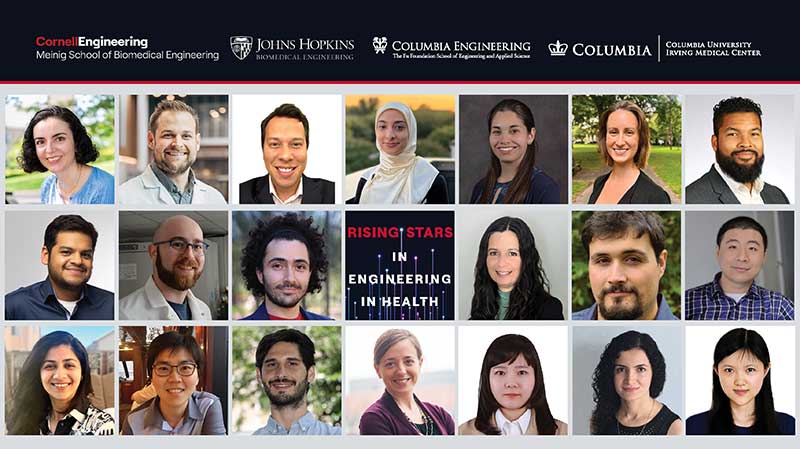
Sandra L. Arias
Click to Open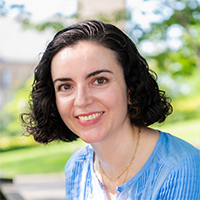 Sandra is currently a Postdoctoral Associate in the Department of Biomedical Engineering at Cornell University, working with Prof. Ilana Brito. She earned her B.S. in Bioengineering from the University of Antioquia, Colombia, and further pursued her M.S. and Ph.D. in the same discipline at the University of Illinois at Urbana-Champaign. Sandra’s research interest centers on applying engineering principles and tools to understand the pathogenesis of microbial infections and their involvement in the onset of diseases such as colorectal cancer. Her ultimate aim is to engineer therapeutic and prophylactic materials to treat these conditions.
Sandra is currently a Postdoctoral Associate in the Department of Biomedical Engineering at Cornell University, working with Prof. Ilana Brito. She earned her B.S. in Bioengineering from the University of Antioquia, Colombia, and further pursued her M.S. and Ph.D. in the same discipline at the University of Illinois at Urbana-Champaign. Sandra’s research interest centers on applying engineering principles and tools to understand the pathogenesis of microbial infections and their involvement in the onset of diseases such as colorectal cancer. Her ultimate aim is to engineer therapeutic and prophylactic materials to treat these conditions.
Evan Buettmann
Click to Open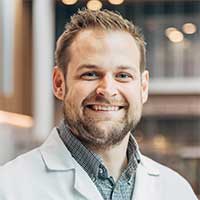 Evan Buettmann is a TRISH/NASA Postdoctoral Fellow at Virginia Commonwealth University with Prof. Henry Donahue, where he investigates how simulated microgravity and osteocyte gap junction communication impact bone fracture healing. His previous work in orthopaedic surgery and biomedical engineering at WUSTL, guided by Prof. Matthew Silva, explored the dispensability of VEGFA from different osteolineage cells during fracture repair. He completed his undergraduate studies at University of Missouri, where he worked in Prof. Sheila Grant’s Lab, developing novel biomaterials for hernia repair. Dr. Buettmann aims to use genetic, biological, and computational bone loading models to better determine how mechanical factors regulate musculoskeletal regeneration. This insight will inform rehabilitation and drug-based approaches to bolster tissue recovery post-injury. Dr. Buettmann is a passionate advocate for science communication and mentorship. He co-founded the ORS Social Media Committee, chairs the ISFR Communication Committee, guest lectures on biomechanics, and refines his mentoring skills through NSF-CIRTL STEM Pedagogical training. Dr. Buettmann’s work has been recognized with multiple awards and honors, including an ORS Collaborative Exchange Grant, IUPUI Muscle-Bone Meeting Young Investigator Award, TRISH/NASA postdoctoral fellowship and NIH NIBIB T32 predoctoral fellowship.
Evan Buettmann is a TRISH/NASA Postdoctoral Fellow at Virginia Commonwealth University with Prof. Henry Donahue, where he investigates how simulated microgravity and osteocyte gap junction communication impact bone fracture healing. His previous work in orthopaedic surgery and biomedical engineering at WUSTL, guided by Prof. Matthew Silva, explored the dispensability of VEGFA from different osteolineage cells during fracture repair. He completed his undergraduate studies at University of Missouri, where he worked in Prof. Sheila Grant’s Lab, developing novel biomaterials for hernia repair. Dr. Buettmann aims to use genetic, biological, and computational bone loading models to better determine how mechanical factors regulate musculoskeletal regeneration. This insight will inform rehabilitation and drug-based approaches to bolster tissue recovery post-injury. Dr. Buettmann is a passionate advocate for science communication and mentorship. He co-founded the ORS Social Media Committee, chairs the ISFR Communication Committee, guest lectures on biomechanics, and refines his mentoring skills through NSF-CIRTL STEM Pedagogical training. Dr. Buettmann’s work has been recognized with multiple awards and honors, including an ORS Collaborative Exchange Grant, IUPUI Muscle-Bone Meeting Young Investigator Award, TRISH/NASA postdoctoral fellowship and NIH NIBIB T32 predoctoral fellowship.
David Castilla-Casadiego
Click to Open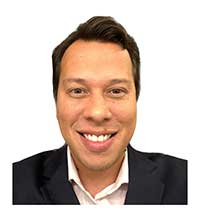 David is a Latino in the sciences from Barranquilla, Colombia and is currently a Provost Early Career Postdoctoral Fellow and an NIH Pathway to Independence Awardee (K99/R00) at the University of Texas at Austin. David is conducting research in the lab of Dr. Adrianne Rosales in the McKetta Department of Chemical Engineering (March 2021). Prior to this position, he earned a Ph.D. in Chemical Engineering from the University of Arkansas at Fayetteville, working with Dr. Jorge Almodóvar, in May 2021, and a master’s degree from the University of Puerto Rico at Mayagüez in 2016. Working at the interface of polymer science and biology, David’s research concerns the design of polymeric biomaterials such as nanofibers, hydrogels, coatings, composites, and microneedle patches for different applications, including stem cell manufacturing, tissue regeneration, and drug delivery for both human and animal health. Recent work has focused on regulating the immunomodulatory potential of stem cells with biophysical cues from different hydrogel surfaces. David’s work has been recognized with a Postdoctoral Young Investigator award (Strong Contributions - Surface Characterization and Modifications) from the Society for Biomaterials. David is pursuing an independent career in academia and envisions future research contributions in stem cell manufacturing, drug delivery, and biosensor applications.
David is a Latino in the sciences from Barranquilla, Colombia and is currently a Provost Early Career Postdoctoral Fellow and an NIH Pathway to Independence Awardee (K99/R00) at the University of Texas at Austin. David is conducting research in the lab of Dr. Adrianne Rosales in the McKetta Department of Chemical Engineering (March 2021). Prior to this position, he earned a Ph.D. in Chemical Engineering from the University of Arkansas at Fayetteville, working with Dr. Jorge Almodóvar, in May 2021, and a master’s degree from the University of Puerto Rico at Mayagüez in 2016. Working at the interface of polymer science and biology, David’s research concerns the design of polymeric biomaterials such as nanofibers, hydrogels, coatings, composites, and microneedle patches for different applications, including stem cell manufacturing, tissue regeneration, and drug delivery for both human and animal health. Recent work has focused on regulating the immunomodulatory potential of stem cells with biophysical cues from different hydrogel surfaces. David’s work has been recognized with a Postdoctoral Young Investigator award (Strong Contributions - Surface Characterization and Modifications) from the Society for Biomaterials. David is pursuing an independent career in academia and envisions future research contributions in stem cell manufacturing, drug delivery, and biosensor applications.
Parinaz Fathi
Click to Open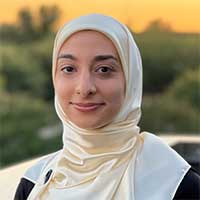 Dr. Parinaz Fathi is an Independent Research Scholar leading the NIBIB Unit for NanoEngineering and MicroPhysiological Systems at the National Institutes of Health. She completed her postdoctoral training in Dr. Kaitlyn Sadtler’s Section on Immunoengineering, where she worked on developing microfluidic models of biomaterial-immune interactions, as well as applying high-throughput assays for biomarker identification and serological studies. She completed her Ph.D. and M.S. in Bioengineering with a graduate concentration in Cancer Nanotechnology at the University of Illinois at Urbana-Champaign. She conducted part of her doctoral research at the National Institute of Standards and Technology (NIST) through the National Physical Science Consortium Fellowship. Prior to this, she completed her B.S. in Mechanical Engineering at the University of Maryland, College Park, with minors in Nanoscale Science & Technology and Engineering Leadership Development. Dr. Fathi was selected for the CAS Future Leaders program (2020) and received the 2021 NIBIB Director’s Award for Outstanding Scholarship (Xiuwen Wang Memorial Award).
Dr. Parinaz Fathi is an Independent Research Scholar leading the NIBIB Unit for NanoEngineering and MicroPhysiological Systems at the National Institutes of Health. She completed her postdoctoral training in Dr. Kaitlyn Sadtler’s Section on Immunoengineering, where she worked on developing microfluidic models of biomaterial-immune interactions, as well as applying high-throughput assays for biomarker identification and serological studies. She completed her Ph.D. and M.S. in Bioengineering with a graduate concentration in Cancer Nanotechnology at the University of Illinois at Urbana-Champaign. She conducted part of her doctoral research at the National Institute of Standards and Technology (NIST) through the National Physical Science Consortium Fellowship. Prior to this, she completed her B.S. in Mechanical Engineering at the University of Maryland, College Park, with minors in Nanoscale Science & Technology and Engineering Leadership Development. Dr. Fathi was selected for the CAS Future Leaders program (2020) and received the 2021 NIBIB Director’s Award for Outstanding Scholarship (Xiuwen Wang Memorial Award).
Marissa Gionet-Gonzalez
Click to Open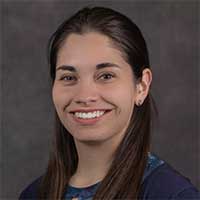 Dr. Marissa Gionet-Gonzales currently works in Dr. Ryan Stowers and Dr. Beth Pruitt’s lab at UC Santa Barbara as a President’s Postdoctoral Fellow (PPFP) and American Society for Engineering Education (ASEE) eFellow. Marissa’s research interests lie in engineering biomaterials to probe important mechanobiological questions related to tissue regeneration and disease. Her current research focuses on measuring the viscoelastic properties of human heart tissue samples and mimicking them in a hydrogel biomaterial. Using these hydrogels, she is able to understand how this understudied mechanical property influences iPSC cardiomyocyte cell function, leading to improved cardiac cell models. During her PhD, she worked in Dr. Kent Leach’s lab as a National Science Foundation Graduate Research Fellow. There she developed a cell and biomaterial platform capable of retaining cell secreted therapeutic components for enhanced skeletal muscle regeneration.
Dr. Marissa Gionet-Gonzales currently works in Dr. Ryan Stowers and Dr. Beth Pruitt’s lab at UC Santa Barbara as a President’s Postdoctoral Fellow (PPFP) and American Society for Engineering Education (ASEE) eFellow. Marissa’s research interests lie in engineering biomaterials to probe important mechanobiological questions related to tissue regeneration and disease. Her current research focuses on measuring the viscoelastic properties of human heart tissue samples and mimicking them in a hydrogel biomaterial. Using these hydrogels, she is able to understand how this understudied mechanical property influences iPSC cardiomyocyte cell function, leading to improved cardiac cell models. During her PhD, she worked in Dr. Kent Leach’s lab as a National Science Foundation Graduate Research Fellow. There she developed a cell and biomaterial platform capable of retaining cell secreted therapeutic components for enhanced skeletal muscle regeneration.
Allison Greaney
Click to Open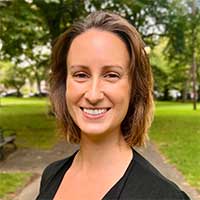 Allie is a NRSA Postdoctoral Fellow in the lab of Dr. Robert Langer at MIT, under the Co-Mentorship of Dr. Ruslan Medzhitov at Yale University. Her research is focused on whole-lung tissue engineering to generate models of biological function and dysfunction, with a long-term goal of engineering transplantable organs. She further develops and employs advanced computational methodologies for evaluating single-cell RNA sequencing of engineered tissues. Prior to her postdoc Allie earned her doctorate in Biomedical Engineering from Yale University under the mentorship of Dr. Laura Niklason, and her BS in BME from Tufts University.
Allie is a NRSA Postdoctoral Fellow in the lab of Dr. Robert Langer at MIT, under the Co-Mentorship of Dr. Ruslan Medzhitov at Yale University. Her research is focused on whole-lung tissue engineering to generate models of biological function and dysfunction, with a long-term goal of engineering transplantable organs. She further develops and employs advanced computational methodologies for evaluating single-cell RNA sequencing of engineered tissues. Prior to her postdoc Allie earned her doctorate in Biomedical Engineering from Yale University under the mentorship of Dr. Laura Niklason, and her BS in BME from Tufts University.
Mykel Green
Click to Open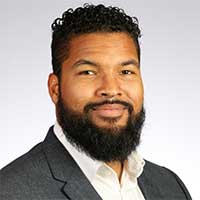 Dr. Mykel Green, the inaugural Provost Early Career Research Fellow in Healthcare Disparities at The University of Texas at Austin, centers his research on understanding sickle cell disease pathology to inform biomaterial-based therapies. While earning a Biology degree from Morehouse College, he studied vascular biology under Dr. Gary Gibbons. Inspired by his summer experience with Dr. Jennifer West, he pursued a doctorate in biomedical engineering and earned an NSF Graduate Research Fellowship. Under Dr. Gilda Barabino at Georgia Tech and The City College of New York, he explored sex differences and pathological manifestations of sickle bone disease and emerging clinical interventions. Currently, with Dr. Elizabeth Cosgriff-Hernandez's guidance, he engineers cell-releasing hydrogels to enhance bone marrow transplantation—the sole cure for sickle cell. Beyond research, Dr. Green co-designed and taught the graduate level Healthcare Equity in BME Design course. As an ardent advocate, he promotes participation and empowerment of marginalized communities in STEM, holding key roles in BlackinBME, National Black Postdoc Association, and the Society for Biomaterials Young Scientist Group.
Dr. Mykel Green, the inaugural Provost Early Career Research Fellow in Healthcare Disparities at The University of Texas at Austin, centers his research on understanding sickle cell disease pathology to inform biomaterial-based therapies. While earning a Biology degree from Morehouse College, he studied vascular biology under Dr. Gary Gibbons. Inspired by his summer experience with Dr. Jennifer West, he pursued a doctorate in biomedical engineering and earned an NSF Graduate Research Fellowship. Under Dr. Gilda Barabino at Georgia Tech and The City College of New York, he explored sex differences and pathological manifestations of sickle bone disease and emerging clinical interventions. Currently, with Dr. Elizabeth Cosgriff-Hernandez's guidance, he engineers cell-releasing hydrogels to enhance bone marrow transplantation—the sole cure for sickle cell. Beyond research, Dr. Green co-designed and taught the graduate level Healthcare Equity in BME Design course. As an ardent advocate, he promotes participation and empowerment of marginalized communities in STEM, holding key roles in BlackinBME, National Black Postdoc Association, and the Society for Biomaterials Young Scientist Group.
Luis Hernandez-Nunez
Click to Open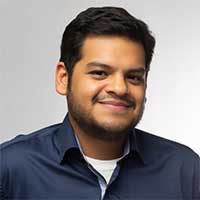 Luis Hernandez-Nunez is a Warren Alpert Distinguished Scholar, a Branco Weiss fellow, and a Life Sciences Research Foundation (LSRF) postdoctoral fellow at the laboratories of Florian Engert and Mark Fishman at Harvard University and a visiting scientist at the HHMI Janelia Research Campus. Luis’ research is focused on the circuit mechanisms for heart-brain interactions in zebrafish. Luis has also been awarded a Burroughs Wellcome Fund Career Award at the Scientific Interface to support his transition to a junior faculty. Luis obtained his Ph.D. in systems biology from Harvard in 2020. He conducted his doctoral research in Aravinthan Samuel’s lab, where he discovered molecules, cells and circuits that mediate thermal homeostasis in larval Drosophila. Before graduate school, Luis was an undergraduate and then a postbac researcher at Thierry Emonet’s lab at Yale University. Prior to moving to the U.S., Luis studied mechatronics engineering at the National University of Engineering in Peru.
Luis Hernandez-Nunez is a Warren Alpert Distinguished Scholar, a Branco Weiss fellow, and a Life Sciences Research Foundation (LSRF) postdoctoral fellow at the laboratories of Florian Engert and Mark Fishman at Harvard University and a visiting scientist at the HHMI Janelia Research Campus. Luis’ research is focused on the circuit mechanisms for heart-brain interactions in zebrafish. Luis has also been awarded a Burroughs Wellcome Fund Career Award at the Scientific Interface to support his transition to a junior faculty. Luis obtained his Ph.D. in systems biology from Harvard in 2020. He conducted his doctoral research in Aravinthan Samuel’s lab, where he discovered molecules, cells and circuits that mediate thermal homeostasis in larval Drosophila. Before graduate school, Luis was an undergraduate and then a postbac researcher at Thierry Emonet’s lab at Yale University. Prior to moving to the U.S., Luis studied mechatronics engineering at the National University of Engineering in Peru.
Bryan D. James
Click to Open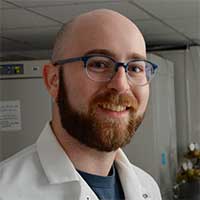 Dr. Bryan D. James is a Postdoctoral Investigator working with Senior Scientists Mark Hahn and Chris Reddy at the Woods Hole Oceanographic Institution (WHOI). His postdoctoral research focuses on understanding the fate, persistence, and toxicity of plastic in the ocean to inform the rational design of next-generation materials that are safe for the environment. As an NIH F31 Predoctoral Fellow advised by Prof. Josephine Allen at the University of Florida, Bryan pioneered the use of nucleic acid-collagen complexes for hard and soft tissue engineering and championed investigating sex as a biological variable in biomaterials research, identifying mechanobiological sex differences in vascular cells. Previously, he received his B.A.Sc. in materials engineering from the University of Toronto. Bryan has been recognized with multiple honors and awards, including being named a CAS Future Leader, a PMSE Future Faculty Scholar, and an early career editorial board member of ACS Biomaterials Science & Engineering. Bryan is committed to enhancing diversity, equity, inclusion, and belonging in STEM through mentoring, outreach, and service activities, most recently as a member of WHOI's Committee for Diversity, Equity, and Inclusion. To support this work, Bryan regularly engages with K-12 educators, mentors community college students, advises policymakers, and collaborates with researchers globally.
Dr. Bryan D. James is a Postdoctoral Investigator working with Senior Scientists Mark Hahn and Chris Reddy at the Woods Hole Oceanographic Institution (WHOI). His postdoctoral research focuses on understanding the fate, persistence, and toxicity of plastic in the ocean to inform the rational design of next-generation materials that are safe for the environment. As an NIH F31 Predoctoral Fellow advised by Prof. Josephine Allen at the University of Florida, Bryan pioneered the use of nucleic acid-collagen complexes for hard and soft tissue engineering and championed investigating sex as a biological variable in biomaterials research, identifying mechanobiological sex differences in vascular cells. Previously, he received his B.A.Sc. in materials engineering from the University of Toronto. Bryan has been recognized with multiple honors and awards, including being named a CAS Future Leader, a PMSE Future Faculty Scholar, and an early career editorial board member of ACS Biomaterials Science & Engineering. Bryan is committed to enhancing diversity, equity, inclusion, and belonging in STEM through mentoring, outreach, and service activities, most recently as a member of WHOI's Committee for Diversity, Equity, and Inclusion. To support this work, Bryan regularly engages with K-12 educators, mentors community college students, advises policymakers, and collaborates with researchers globally.
Dani Kiyasseh
Click to Open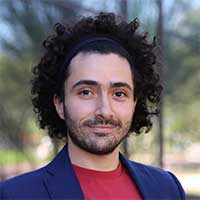 Dani conducts research at the intersection of artificial intelligence (AI) and healthcare. Specifically, he focuses on developing clinical AI systems that are (1) resource-efficient, requiring fewer data points and annotations and less supervision by medical professionals, and (2) trustworthy, exhibiting robust and fair performance to allow for their responsible deployment in a clinical setting. His long-term goal is to improve the accessibility of healthcare in low-resource settings.
Dani conducts research at the intersection of artificial intelligence (AI) and healthcare. Specifically, he focuses on developing clinical AI systems that are (1) resource-efficient, requiring fewer data points and annotations and less supervision by medical professionals, and (2) trustworthy, exhibiting robust and fair performance to allow for their responsible deployment in a clinical setting. His long-term goal is to improve the accessibility of healthcare in low-resource settings.
Dani was a postdoctoral fellow at Caltech, jointly advised by Anima Anandkumar and Andrew Hung, where he developed AI systems to decode the activity of surgeons through videos. He completed his DPhil at the University of Oxford, under the guidance of David Clifton and Tingting Zhu, designing deep learning algorithms that overcome the challenges posed by limited labelled physiological time-series data, such as the electrocardiogram. Dani earned his BS in biomedical engineering from The Johns Hopkins University. He has also spent time conducting machine learning research at Ford Motor Company, Mayo Clinic, Merck & Co., Flatiron Health, and Vicarious Surgical. His research has been published in ICML, NeurIPS, Nature Communications, and Nature Biomedical Engineering.
Nicole Mercer Lindsay
Click to Open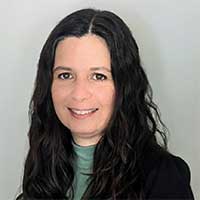 Dr. Nicole Mercer Lindsay is a K99/R00 funded postdoctoral fellow studying noninvasive brain stimulation for chronic pain relief at Stanford University under the joint mentorship of Dr. Mark Schnitzer and Dr. Grégory Scherrer (UNC). Dr. Mercer received her Ph.D. from UC San Diego under the supervision of Dr. David Kleinfeld. Her thesis work revealed specific descending circuits by which the motor cortex can elicit and coordinate movements of the face, jaw, and forelimbs. Her postdoctoral studies build on this prior work by identifying how motor cortical output pathways can not only command movement but also influence sensation, including pain. Dr. Mercer's work pioneers the use of a mouse-scale transcranial magnetic stimulation (TMS) device with pharmacological and chemogenetic manipulations to dissect the mechanisms underlying motor cortex stimulation-induced analgesia in mouse models of chronic pain. Going forward, she aims to collaborate with clinicians to translate mechanistic discoveries in rodents to develop TMS protocols with increased efficacy to relieve pain in humans suffering from chronic pain.
Dr. Nicole Mercer Lindsay is a K99/R00 funded postdoctoral fellow studying noninvasive brain stimulation for chronic pain relief at Stanford University under the joint mentorship of Dr. Mark Schnitzer and Dr. Grégory Scherrer (UNC). Dr. Mercer received her Ph.D. from UC San Diego under the supervision of Dr. David Kleinfeld. Her thesis work revealed specific descending circuits by which the motor cortex can elicit and coordinate movements of the face, jaw, and forelimbs. Her postdoctoral studies build on this prior work by identifying how motor cortical output pathways can not only command movement but also influence sensation, including pain. Dr. Mercer's work pioneers the use of a mouse-scale transcranial magnetic stimulation (TMS) device with pharmacological and chemogenetic manipulations to dissect the mechanisms underlying motor cortex stimulation-induced analgesia in mouse models of chronic pain. Going forward, she aims to collaborate with clinicians to translate mechanistic discoveries in rodents to develop TMS protocols with increased efficacy to relieve pain in humans suffering from chronic pain.
Brian O'Grady
Click to Open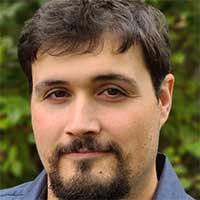 Dr. Brian O'Grady is a postdoctoral fellow at Vanderbilt University. He earned his B.S. and M.S. in neurobiology at the University of Texas at San Antonio and his Ph.D. in Materials Science at Vanderbilt University. During his predoctoral training, Brian developed pump perfusion systems and bioreactors to control the spatiotemporal differentiation of stem cells in 3D hydrogels. As a postdoctoral fellow in Dr. Ethan Lippmann’s Lab, Brian developed several applications for a biomimetic hydrogel including 3D culture of single-cell suspensions of iPSC-derived neurons into mature and synaptically connected networks, and supporting human ex vivo capillary maturation and arteriogenesis. His ongoing work aims to accurately mimic the anatomical architecture of the neurovascular unit to study the mechanisms of pathologies affecting the blood-brain barrier and screen novel therapies for various diseases. Brian’s research has been supported by an NIH T32 postdoctoral fellowship, and he was recently awarded an NIH MOSAIC K99/R00 grant to develop a platform for studying blood-brain barrier pathology mechanisms and screening promising therapeutics. He is interested in establishing an independent research group that develops innovative platforms for disease modeling and drug discovery in the field of tissue engineering, and he is committed to increasing diversity in biomedical research.
Dr. Brian O'Grady is a postdoctoral fellow at Vanderbilt University. He earned his B.S. and M.S. in neurobiology at the University of Texas at San Antonio and his Ph.D. in Materials Science at Vanderbilt University. During his predoctoral training, Brian developed pump perfusion systems and bioreactors to control the spatiotemporal differentiation of stem cells in 3D hydrogels. As a postdoctoral fellow in Dr. Ethan Lippmann’s Lab, Brian developed several applications for a biomimetic hydrogel including 3D culture of single-cell suspensions of iPSC-derived neurons into mature and synaptically connected networks, and supporting human ex vivo capillary maturation and arteriogenesis. His ongoing work aims to accurately mimic the anatomical architecture of the neurovascular unit to study the mechanisms of pathologies affecting the blood-brain barrier and screen novel therapies for various diseases. Brian’s research has been supported by an NIH T32 postdoctoral fellowship, and he was recently awarded an NIH MOSAIC K99/R00 grant to develop a platform for studying blood-brain barrier pathology mechanisms and screening promising therapeutics. He is interested in establishing an independent research group that develops innovative platforms for disease modeling and drug discovery in the field of tissue engineering, and he is committed to increasing diversity in biomedical research.
Xuyu Qian
Click to Open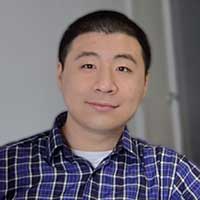 Dr. Xuyu Qian is a postdoctoral fellow at Dr. Chris Walsh’s laboratory at Boston Children’s Hospital. He is a recipient of the HHMI-Helen Hay Whitney Fellowship and was named Forbes 30 Under 30 in Science in 2022. He obtained his PhD from Johns Hopkins University under Dr. Hongjun Song, where he pioneered novel methodologies to generate brain organoids from human pluripotent stem cells, and used them to investigate Zika Virus-induced neurological birth defects. As a postdoctoral fellow, Dr. Qian's research has focused on unraveling the complexities of human cerebral cortex development and associated disorders. His distinctive expertise in organoids, coupled with human genetics analysis, has enabled the identification of novel genetic mutations responsible for congenital brain malformations. His ongoing project leverages cutting edge spatial transcriptomics method to profile human cortical development in postmortem primary samples. Dr. Qian envisions his future independent lab to continue using human-centric approaches to investigate the human cerebral cortex, and harness the insights to advance treatment of neurodevelopment disorders such as autism spectrum disorder.
Dr. Xuyu Qian is a postdoctoral fellow at Dr. Chris Walsh’s laboratory at Boston Children’s Hospital. He is a recipient of the HHMI-Helen Hay Whitney Fellowship and was named Forbes 30 Under 30 in Science in 2022. He obtained his PhD from Johns Hopkins University under Dr. Hongjun Song, where he pioneered novel methodologies to generate brain organoids from human pluripotent stem cells, and used them to investigate Zika Virus-induced neurological birth defects. As a postdoctoral fellow, Dr. Qian's research has focused on unraveling the complexities of human cerebral cortex development and associated disorders. His distinctive expertise in organoids, coupled with human genetics analysis, has enabled the identification of novel genetic mutations responsible for congenital brain malformations. His ongoing project leverages cutting edge spatial transcriptomics method to profile human cortical development in postmortem primary samples. Dr. Qian envisions his future independent lab to continue using human-centric approaches to investigate the human cerebral cortex, and harness the insights to advance treatment of neurodevelopment disorders such as autism spectrum disorder.
Smriti Sangwan
Click to Open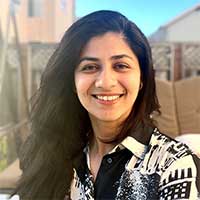 Dr. Smriti Sangwan is a postdoctoral fellow at UCSF in the labs of Prof. Peter Walter and Prof. David Agard supported by a K99 pathway to independence grant from NIGMS. She received her PhD from UCLA in the lab of Prof. David Eisenberg. Her research program focuses on the molecular mechanisms of ER quality control and its maladaptation under stress. Currently, she is working on IRE1 (Inositol Requiring Enzyme1) which acts as a gatekeeper of the endoplasmic reticulum (ER), the organelle where most transmembrane and secreted proteins fold. It senses the accumulation of unfolded proteins and activates a signaling network to correct the defect. Using single-particle cryoEM, next-generation sequencing and biochemical approaches, she has obtained a structural and functional understanding of IRE1’s role in co-translational protein quality control and its autoregulation (Sangwan et al. in preparation). Building on this discovery and merging it with her graduate experience in disease pathogenesis and structure-guided drug design, Dr. Sangwan will set up a lab focusing on understanding the principles of protein quality control at the ER with the long-term goal of leveraging the information for therapeutic design. The ER, translation machinery, and UPR sensors are hot spots for maladaptation in diseases and a targeted approach will yield therapeutic avenues in numerous diseases.
Dr. Smriti Sangwan is a postdoctoral fellow at UCSF in the labs of Prof. Peter Walter and Prof. David Agard supported by a K99 pathway to independence grant from NIGMS. She received her PhD from UCLA in the lab of Prof. David Eisenberg. Her research program focuses on the molecular mechanisms of ER quality control and its maladaptation under stress. Currently, she is working on IRE1 (Inositol Requiring Enzyme1) which acts as a gatekeeper of the endoplasmic reticulum (ER), the organelle where most transmembrane and secreted proteins fold. It senses the accumulation of unfolded proteins and activates a signaling network to correct the defect. Using single-particle cryoEM, next-generation sequencing and biochemical approaches, she has obtained a structural and functional understanding of IRE1’s role in co-translational protein quality control and its autoregulation (Sangwan et al. in preparation). Building on this discovery and merging it with her graduate experience in disease pathogenesis and structure-guided drug design, Dr. Sangwan will set up a lab focusing on understanding the principles of protein quality control at the ER with the long-term goal of leveraging the information for therapeutic design. The ER, translation machinery, and UPR sensors are hot spots for maladaptation in diseases and a targeted approach will yield therapeutic avenues in numerous diseases.
Fang-Yi “Ida” Su
Click to Open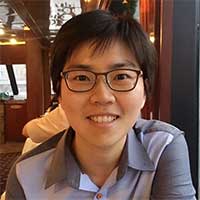 Fang-Yi “Ida” Su is a postdoctoral fellow in the laboratory of Dr. Gabe Kwong at Georgia Tech and Emory School of Medicine. Prior to her postdoctoral training, she received her Ph.D. in bioengineering from the University of Washington with Dr. Patrick Stayton, and her M.S. in chemical engineering with Dr. Hsing-Wen Sung from National Tsing Hua University in Taiwan. In her postdoc work, she has developed a lipid nanoparticle-based delivery system, termed Antigen-Presenting Nanoparticles, APNs, to selectively deliver mRNA to disease-relevant T cell subsets in vivo and program their functionalities. This modular delivery system opens the opportunities to engineer T cells in vivo to improve the treatments for cancer, autoimmune diseases, and more. In recognition of her work, Dr. Su has been honored with notable awards including a postdoctoral fellowship jointly provided by Georgia Tech and Peking University (China), the HHMI International Student Research Fellowship, and the MOE Technologies Incubation Scholarship from the Taiwanese Government. Her career goals are to lead a research lab and address unmet clinical needs in cancer, infectious diseases, and autoimmunity.
Fang-Yi “Ida” Su is a postdoctoral fellow in the laboratory of Dr. Gabe Kwong at Georgia Tech and Emory School of Medicine. Prior to her postdoctoral training, she received her Ph.D. in bioengineering from the University of Washington with Dr. Patrick Stayton, and her M.S. in chemical engineering with Dr. Hsing-Wen Sung from National Tsing Hua University in Taiwan. In her postdoc work, she has developed a lipid nanoparticle-based delivery system, termed Antigen-Presenting Nanoparticles, APNs, to selectively deliver mRNA to disease-relevant T cell subsets in vivo and program their functionalities. This modular delivery system opens the opportunities to engineer T cells in vivo to improve the treatments for cancer, autoimmune diseases, and more. In recognition of her work, Dr. Su has been honored with notable awards including a postdoctoral fellowship jointly provided by Georgia Tech and Peking University (China), the HHMI International Student Research Fellowship, and the MOE Technologies Incubation Scholarship from the Taiwanese Government. Her career goals are to lead a research lab and address unmet clinical needs in cancer, infectious diseases, and autoimmunity.
Guillaume Urtecho
Click to Open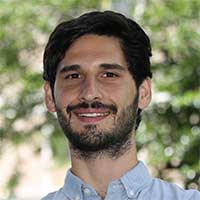 Dr. Guillaume Urtecho is a Hanna H. Gray Postdoctoral Fellow at Columbia University in the laboratory of Dr. Harris Wang. His current work uses fecal transplantation models to learn how microbes colonize ecosystems and how we can leverage these ecological mechanisms to engineer the human microbiome. He aspires to lead a diverse academic research group dedicated to developing high-throughput platforms to rapidly prototype personalized microbial therapeutics for gastrointestinal diseases.
Dr. Guillaume Urtecho is a Hanna H. Gray Postdoctoral Fellow at Columbia University in the laboratory of Dr. Harris Wang. His current work uses fecal transplantation models to learn how microbes colonize ecosystems and how we can leverage these ecological mechanisms to engineer the human microbiome. He aspires to lead a diverse academic research group dedicated to developing high-throughput platforms to rapidly prototype personalized microbial therapeutics for gastrointestinal diseases.
Guillaume is a native of the California Central Valley. He received his B.S. in Genetics from UC Davis and PhD in Molecular Biology from UCLA under the mentorship of Dr. Sriram Kosuri. In his PhD work, he developed a design-build-test-learn pipeline using high-throughput testing and machine learning to explore how bacterial promoters are encoded in DNA sequences. Beyond research, Guillaume is committed to advancing DEI and equal representation in STEM through mentoring trainees and community science education.
Kayla Wolf
Click to Open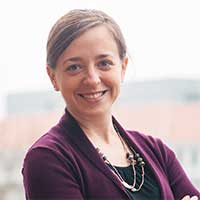 Dr. Kayla Wolf is engineering functional kidney tissues to accelerate drug discovery, transplantation, and hypothesis testing. She is particularly interested in the collecting duct and integrating a functional drainage network into engineered kidney tissue. Toward this goal, she has developed a perfusable ureteric bud on-chip that can be used for disease modeling or embedded within biomanufactured tissue. She is an NIH Ruth L. Kirschstein NRSA Postdoctoral Fellow in Dr. Jennifer Lewis's Laboratory at Harvard University and received her Ph.D. in Bioengineering from the joint program at University of California, Berkeley - University of California, San Francisco. During her graduate studies, she investigated how tumor cell-matrix interactions influence tumor invasion and could therefore be leveraged as therapeutic targets. To accelerate this work, Kayla engineered tissue models that recapitulate biophysical properties of the brain and can be used for discovery, screening, and hypothesis testing. Kayla is a National Science Foundation Graduate Research Fellow, Ruth L. Kirschstein National Research Predoctoral Fellow (F31), and Siebel Fellow. Prior to her PhD, Kayla earned a B.S. in Chemistry and a B.S. in Human Biology from Michigan State University.
Dr. Kayla Wolf is engineering functional kidney tissues to accelerate drug discovery, transplantation, and hypothesis testing. She is particularly interested in the collecting duct and integrating a functional drainage network into engineered kidney tissue. Toward this goal, she has developed a perfusable ureteric bud on-chip that can be used for disease modeling or embedded within biomanufactured tissue. She is an NIH Ruth L. Kirschstein NRSA Postdoctoral Fellow in Dr. Jennifer Lewis's Laboratory at Harvard University and received her Ph.D. in Bioengineering from the joint program at University of California, Berkeley - University of California, San Francisco. During her graduate studies, she investigated how tumor cell-matrix interactions influence tumor invasion and could therefore be leveraged as therapeutic targets. To accelerate this work, Kayla engineered tissue models that recapitulate biophysical properties of the brain and can be used for discovery, screening, and hypothesis testing. Kayla is a National Science Foundation Graduate Research Fellow, Ruth L. Kirschstein National Research Predoctoral Fellow (F31), and Siebel Fellow. Prior to her PhD, Kayla earned a B.S. in Chemistry and a B.S. in Human Biology from Michigan State University.
Aerin Yang
Click to Open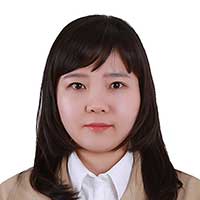 Aerin is a postdoctoral researcher at Stanford University, working with Dr. Chris Garcia. Her research centers on engineering cell surface receptors/ligands and developing protein engineering tools to study protein-protein coevolution. She earned her Ph.D. in Chemistry from KAIST, South Korea, mentored by Dr. Hee-Sung Park. Her graduate thesis focused on developing chemical biology tools for site-specific modification of proteins and investigating the fundamental mechanisms of post-translational modifications, which was recognized with multiple awards and honors, including an Agarwal Award, a Dow Chemical Award, and a Best Thesis Award from KAIST. She came to Stanford to work on engineering protein-protein interactions by interdisciplinary approaches. During her postdoctoral training, she pioneered a synthetic platform for coevolving two proteins using a "library-on-library" approach, which can be integrated with machine learning to provide unparalleled granularity in exploring protein-protein interactions. Aerin’s contributions have been published in reputable journals, and she has received recognition such as HFSP Postdoctoral Fellowships.
Aerin is a postdoctoral researcher at Stanford University, working with Dr. Chris Garcia. Her research centers on engineering cell surface receptors/ligands and developing protein engineering tools to study protein-protein coevolution. She earned her Ph.D. in Chemistry from KAIST, South Korea, mentored by Dr. Hee-Sung Park. Her graduate thesis focused on developing chemical biology tools for site-specific modification of proteins and investigating the fundamental mechanisms of post-translational modifications, which was recognized with multiple awards and honors, including an Agarwal Award, a Dow Chemical Award, and a Best Thesis Award from KAIST. She came to Stanford to work on engineering protein-protein interactions by interdisciplinary approaches. During her postdoctoral training, she pioneered a synthetic platform for coevolving two proteins using a "library-on-library" approach, which can be integrated with machine learning to provide unparalleled granularity in exploring protein-protein interactions. Aerin’s contributions have been published in reputable journals, and she has received recognition such as HFSP Postdoctoral Fellowships.
Parisa Yousefpour
Click to Open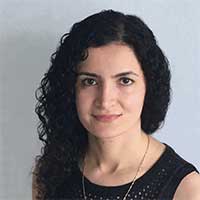 Dr. Parisa Yousefpour is currently an NIH Kirschstein-NRSA Postdoctoral Fellow, working with Prof. Darrell Irvine at the Koch Institute for Integrative Cancer Research at MIT. Her postdoctoral work, in collaboration with Prof. Ron Weiss’s research group at MIT, is centered on developing small-molecule responsive gene circuits for the temporal control of transgene expression in RNA therapeutics for cancer immunotherapy and vaccine development.
Dr. Parisa Yousefpour is currently an NIH Kirschstein-NRSA Postdoctoral Fellow, working with Prof. Darrell Irvine at the Koch Institute for Integrative Cancer Research at MIT. Her postdoctoral work, in collaboration with Prof. Ron Weiss’s research group at MIT, is centered on developing small-molecule responsive gene circuits for the temporal control of transgene expression in RNA therapeutics for cancer immunotherapy and vaccine development.
She earned her Ph.D. in Biomedical Engineering from Duke University and was the recipient of the Howard G. Clark III Fellowship and the Bass Instructional Fellowship. During her Ph.D. studies, under the mentorship of Prof. Ashutosh Chilkoti and with a focus on drug delivery, biopolymers and protein engineering, Parisa developed several albumin-binding drug delivery platforms for treating cancer and diabetes. Previously, she received her integrated BS-MS degree in Biotechnology/Bioprocess Engineering from the University of Tehran in Iran, supported by a National Elite Foundation (NEF) Scholarship. She is committed to promoting diversity, equity, and inclusion in research, through mentorship and service activities. She is presently the Undergraduate Relations co-chair for MIT's Graduate First Generation and/or Low Income (GFLI) student association.
Anqi Zhang
Click to Open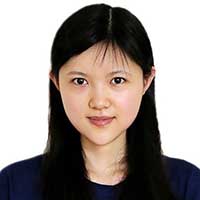 Dr. Anqi Zhang is currently an American Heart Association (AHA) postdoctoral fellow working with Professor Zhenan Bao in the Department of Chemical Engineering and Professor Karl Deisseroth in the Department of Bioengineering at Stanford University. She received her Ph.D. degree under the supervision of Professor Charles M. Lieber in the Department of Chemistry and Chemical Biology at Harvard University in 2020, and her B.S. degree in Materials Chemistry from Fudan University in 2014. She is interested in combining novel chemical, genetic and electronic tools to monitor and interrogate neural circuits in a minimally invasive manner. Her long-term goal is to develop an interdisciplinary bioengineering and neurotechnology research program to achieve clinical translation of minimally invasive, chronically stable neuroelectronic interfaces capable of long-term monitoring and treatment of neurological diseases.
Dr. Anqi Zhang is currently an American Heart Association (AHA) postdoctoral fellow working with Professor Zhenan Bao in the Department of Chemical Engineering and Professor Karl Deisseroth in the Department of Bioengineering at Stanford University. She received her Ph.D. degree under the supervision of Professor Charles M. Lieber in the Department of Chemistry and Chemical Biology at Harvard University in 2020, and her B.S. degree in Materials Chemistry from Fudan University in 2014. She is interested in combining novel chemical, genetic and electronic tools to monitor and interrogate neural circuits in a minimally invasive manner. Her long-term goal is to develop an interdisciplinary bioengineering and neurotechnology research program to achieve clinical translation of minimally invasive, chronically stable neuroelectronic interfaces capable of long-term monitoring and treatment of neurological diseases.

